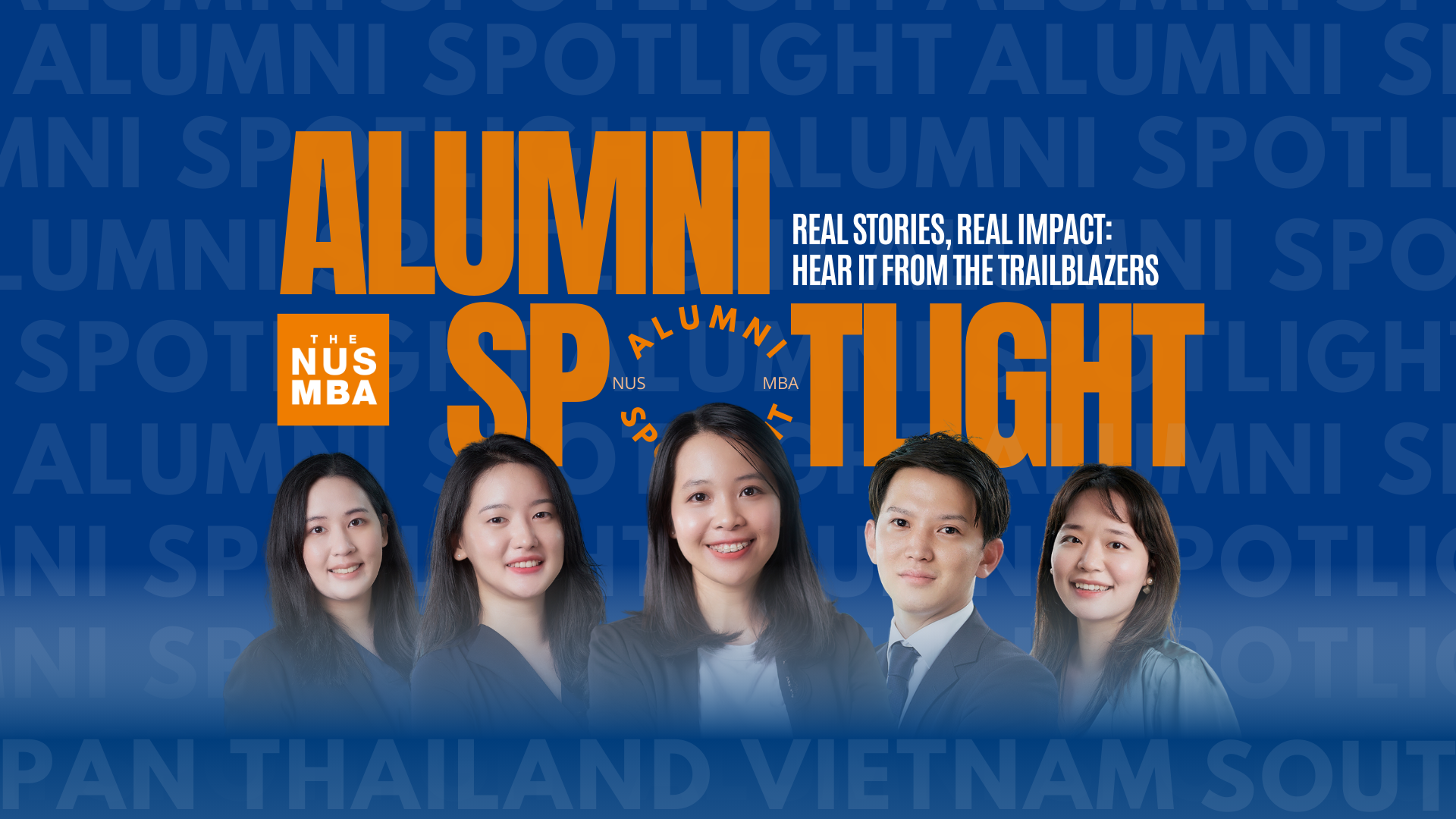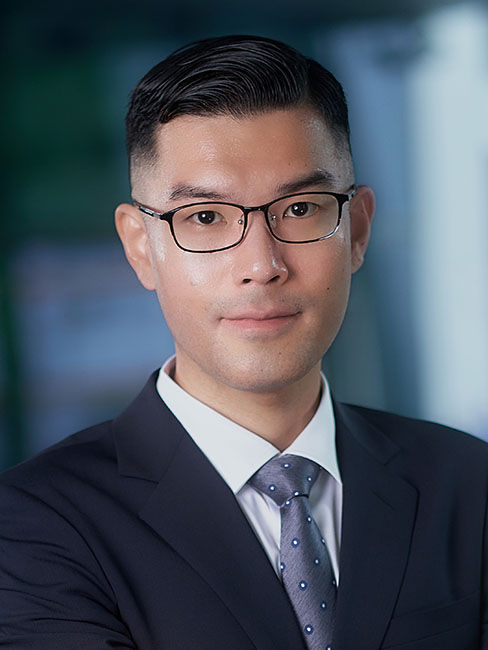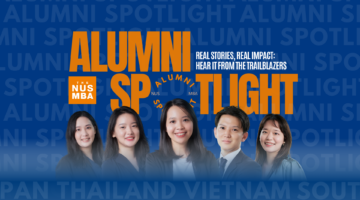How the NUS MBA Empowers Entrepreneurs: Kim Sunghan’s Story
|
|
Kim Sunghan
|
“Running my own business has been one of my lifelong goals since starting my professional career in the fashion and textile industry in 2014. However, I had vague ideas without specific plans and the startup confidence to step forward.”
For Kim Sunghan, a 2023 graduate of the NUS MBA programme, the full-time course provided the academic knowledge, practical insights, and exposure he needed to transform his entrepreneurial aspirations into actionable plans. With nearly a decade of experience in Vietnam and Korea, working for globally recognised brands like Columbia Sportswear, Jack Wolfskin, and Bogner, Sunghan had already honed his expertise in sourcing and consulting. The NUS MBA gave him the tools to take the next step and pursue his dream of launching a sustainable fashion brand. He is currently preparing to launch his own company, Lab of Apparel, as a founder.
Finding clarity and confidence in entrepreneurship
Sunghan joined the NUS MBA programme with a clear goal: to develop a sustainable fashion label offering functional yet eco-friendly apparel and accessories. However, he needed guidance and resources to bring his ideas to life.
“I hoped to gain academic knowledge and practical insight from core and elective modules to consulting and other projects throughout my MBA journey,” he explains. While the programme delivered on these aspects, Sunghan found that some of his most valuable insights came from unexpected sources. “Conversing with admirable industry leaders and alumni, as well as watching some of my peers dare to face their challenges to start companies, were more than enough to be motivated.”
One of these industry leaders was Jens Veltmann, an NUS alumnus who works at Groz-Beckert, one of the leading textile machinery companies. “Right after finding his contact on LinkedIn, I texted and visited his office. Because we were working in the same sector, we could share the latest market information and discuss how to complete the MBA course,” he recalls. Jens also provided critical feedback on Sunghan’s business models, helping him confidently refine his ideas. “I strongly believe that this sort of continuous support is unusual and unexpected—something I deeply appreciate.”
Lessons in collaboration and adaptability
Apart from mentorship, working with a diverse cohort was one of the most enriching aspects of the MBA experience. However, Sunghan admitted this also came with challenges, especially during group projects.
“Our topic was to define the air quality management system market and develop the penetration strategy in Asia,” he shares. “From the first step, my team failed to make one consolidated direction and had to present a pack of unrefined opinions. Every member had different and strong points of view, and nobody was ready to respect each other.”
Through reflection and open communication, the team managed to turn things around. “After severe arguments and time for reflection, we admitted that we should change mindsets to work together and strictly adhere to schedules. Everything came back on track, and our client and advisor were impressed. All the team members earned the highest grade for this module in the end,” he says.
This experience reinforced Sunghan’s ability to manage cultural and professional differences, skills he now relies on when collaborating with partners and colleagues.
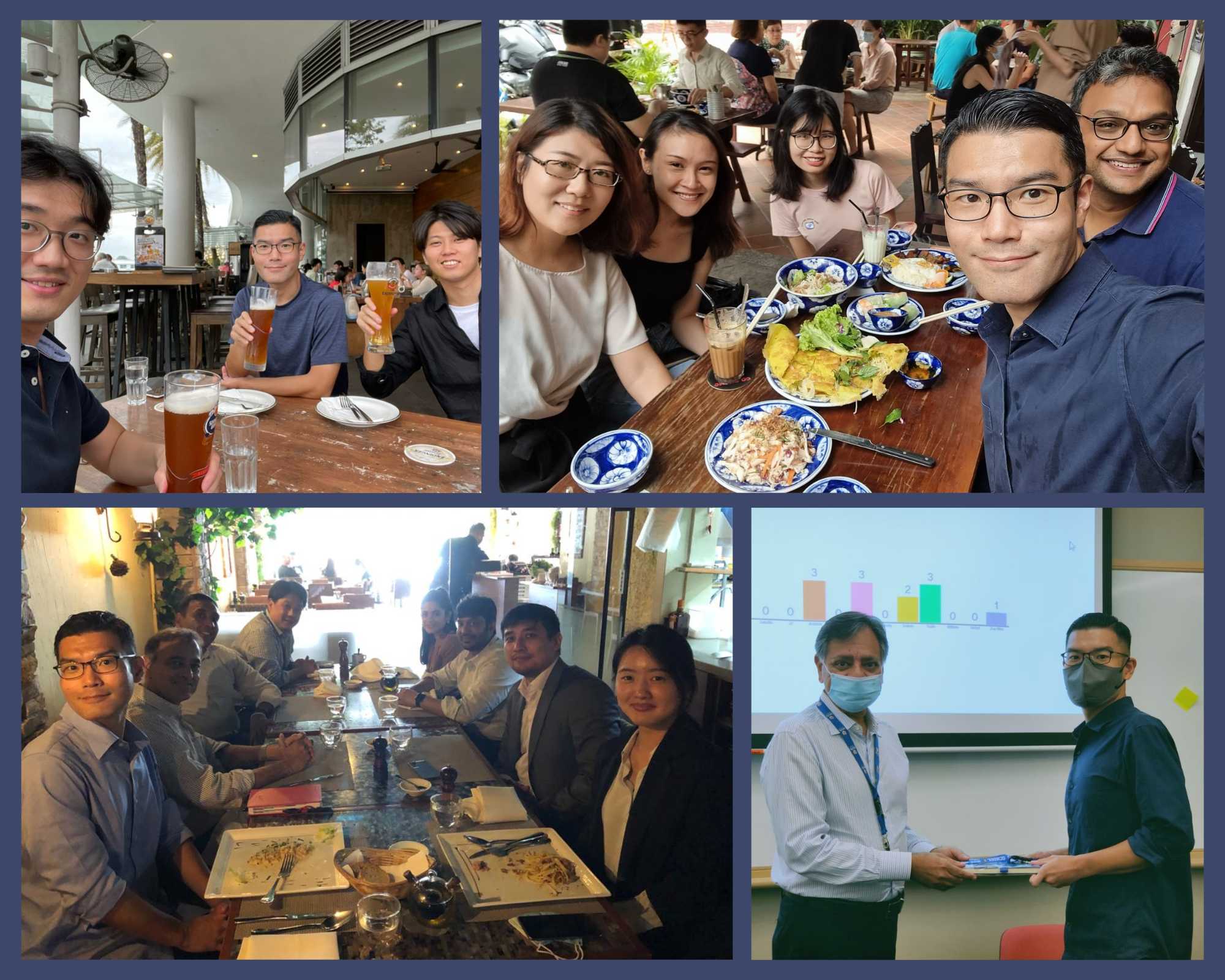
Turning challenges into opportunities: An internship at SFC
Finding an internship in Singapore’s fashion and textile industry proved more difficult than Sunghan had anticipated. “I foresaw a fundamental shift from Hong Kong to Singapore for the function of sourcing from global fashion brands, and that was one of the reasons I chose NUS instead of schools in Hong Kong,” he explains. “However, till the end of my course, there was only one case of Asia headquarters relocation, which made me so stressed that I was about to give up.”
Eventually, he secured an internship with the Singapore Fashion Council (SFC). “When I had a chance to join the Singapore Fashion Council to support them in expanding their resources for their members, I was truly happy and so proud of myself,” he says. During the three-month internship, he developed partnerships with material suppliers, manufacturers, agents, and service providers, helping the team achieve its annual KPIs.
In return, Sunghan gained access to programmes tailored for fashion startups and expanded his network with other innovators. One memorable moment involved meeting an elderly woman who had just started her own company. “She reminded me that the truth of life is not about age but about your willingness to take the leap,” he reflects.
A global network of support
Since graduating, Sunghan has continued to benefit from the NUS global alumni network. “One of our part-time alumni, Alex, was a specialist in developing new substances,” he shares. “I visited his Singapore laboratory and shared ideas through virtual and physical gatherings. When I initiated my project more seriously this year, I presented the concepts of expected business models and asked him for feedback.”
Sunghan plans to use the alum network to expand his brand beyond Korea to other Asian markets, including Singapore, Vietnam, and Indonesia. “I am going to utilise the NUS global alumni network to understand the characteristics of each market and to develop the most appropriate strategies,” he says.
Reflecting on his MBA journey, Sunghan offers practical advice for prospective students. “To maximise your experience, I would like to emphasise the importance of study. The NUS MBA course is designed to educate students on all the essential academic knowledge that could be useful, especially for someone who has not taken business topics before,” he advises. “Yes, you still need to study hard.”
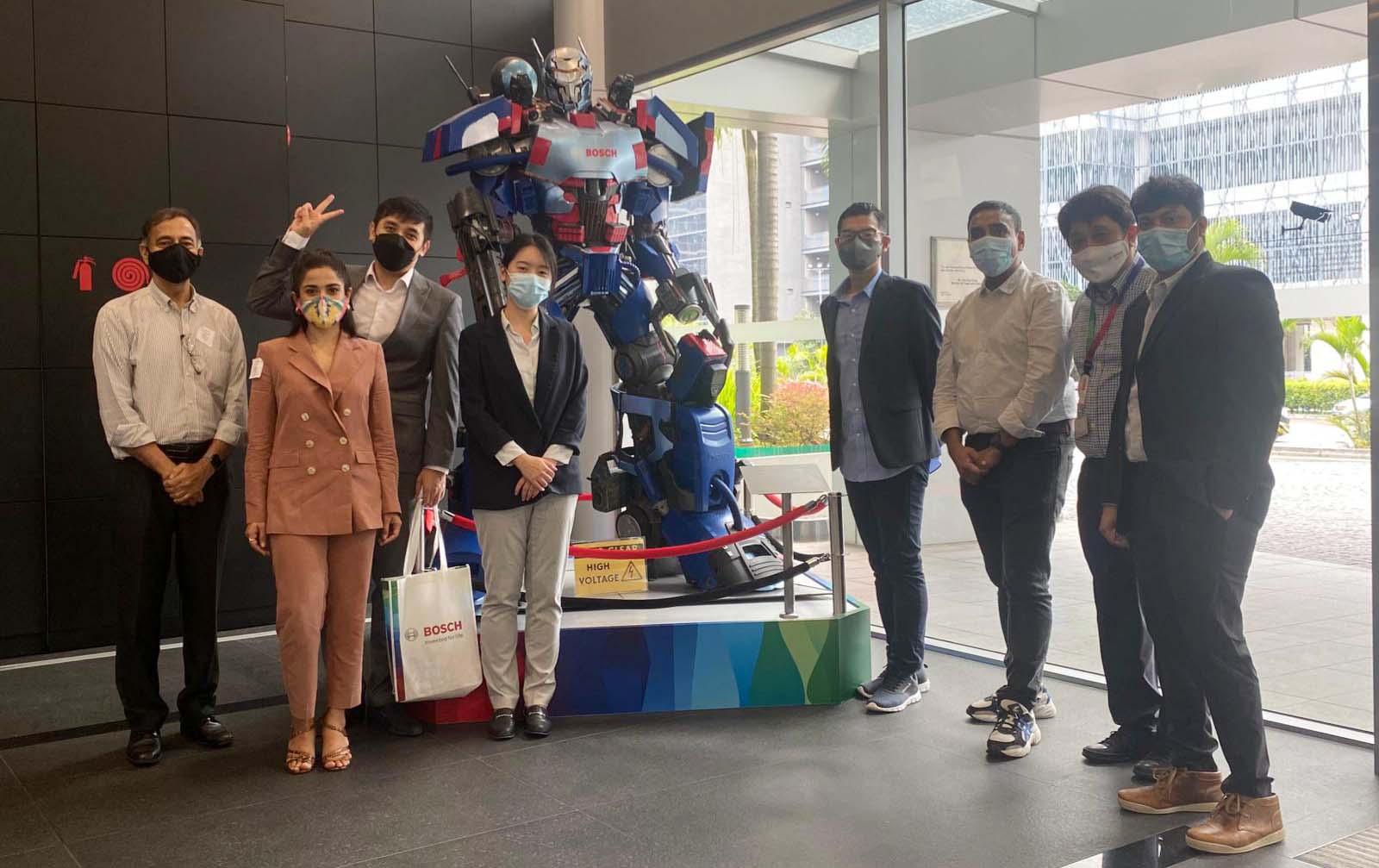
Networking is another key takeaway. “Each student should have targeted industries and invest enough time to search for the right figures to become their lifetime mentors or advisors. I contacted nearly every leader in Singapore’s fashion and textile sector during my MBA journey. “Some didn’t respond, but the majority were open and reacted positively,” he says.
He wisely advises prospective candidates to “Leave their comfort zone and enjoy facing new challenges constantly.”
Conclusion
From a sourcing specialist to a sustainable fashion entrepreneur, Sunghan shows how the NUS MBA can help aspiring entrepreneurs turn their ideas into reality. If you’re ready to gain the skills, confidence, and network to realise your vision, it’s time to explore the full-time NUS MBA programme today.
